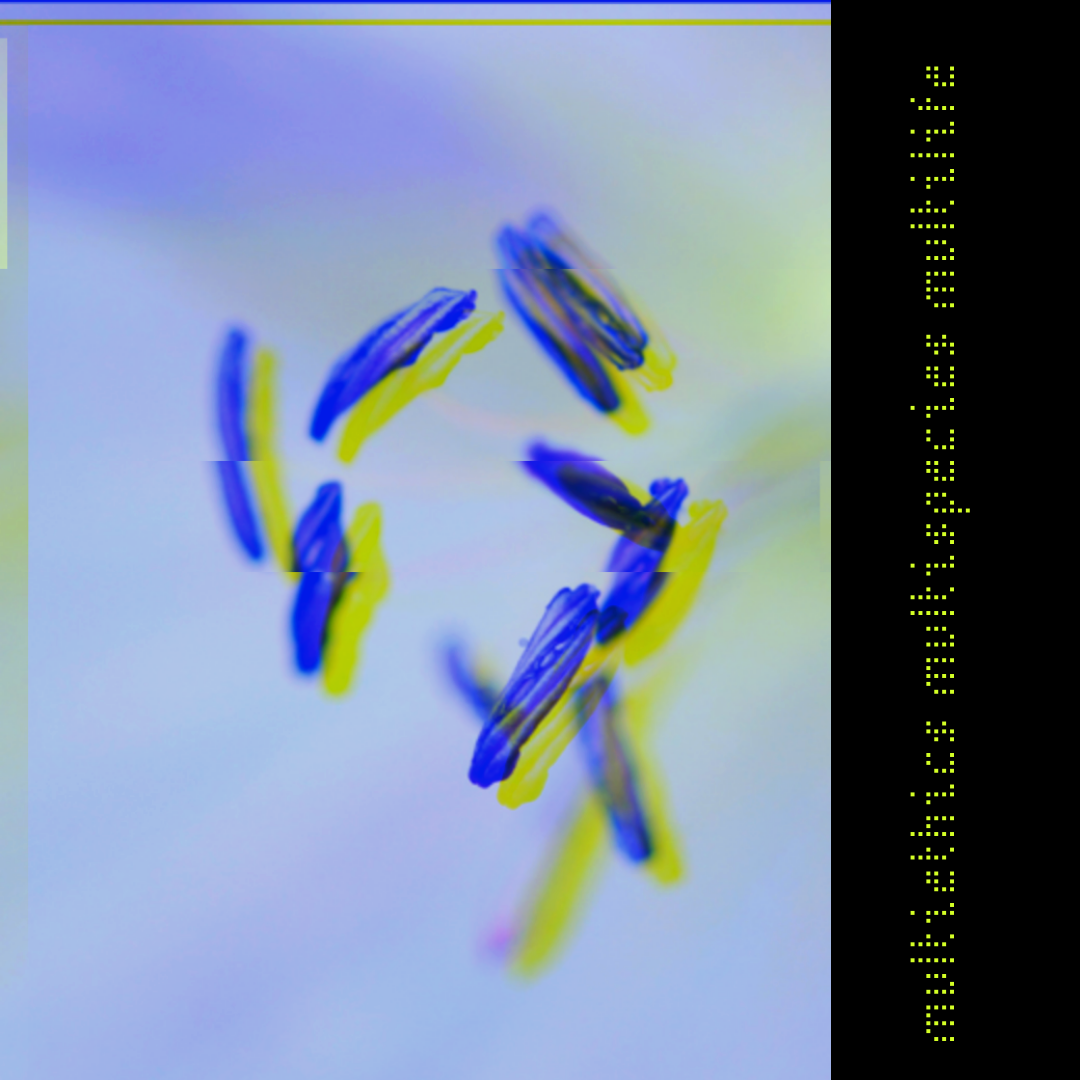
Maria Olujic
Artist Statement: Talking & Listening to Plants
My relationship with plants began in a small Dalmatian hinterland village where brambles, grapevines, and tobacco leaves grew side by side with corn, wild mint, and basil so small their leaves were no larger than a fingernail. Aromatic shrubs perfumed the air, even in the rocky soil that barely seemed able to hold life. As a child, I thought of them as ordinary companions, stubborn and enduring, like the villagers themselves. Only later did I realize that those plants were shaping the way I understood resilience, survival, and memory.
At the University of California, Berkeley, where I studied biology before turning to anthropology, I was first introduced to botany as a discipline. What captured me was not the Latin nomenclature but the invisible currents moving through plants—the xylem and phloem carrying water and nutrients, unseen lifelines inside what appeared still and silent. Later, as a Montessori teacher, I learned about leaf shapes. As a docent at Filoli, a National Trust historic estate and garden, I taught how flowers ripen into fruit, tracing cycles of transformation.
The moment that most altered my vision of plants came when my oldest son returned from Montessori preschool. I asked what he had done that day. “Botany,” he said. I gaped—a four-year-old using that word. Stumbling, I asked if he knew what it meant. Without hesitation, he replied: “The study of plants.” His certainty stopped me. In that moment, I understood that the language of plants was not only scientific, but also inherited, lived, and shared across generations.
Since then, I have never looked at plants—or the so-called weeds—in the same way again. What once seemed only pests revealed themselves as stubborn, resilient companions. Plants, for me, carry memory, witness, and story. They root human experience in soil and reach toward the ineffable. In my writing, plants often appear as anchors and as metaphors: lavender for grief, wild basil for persistence, grapevines for lineage. Even the naming of fruit as girls’ first names leaves me in wonder, as if language itself could ripen on the tongue. Plants offer not only survival, but a language through which memory becomes meaning.
Maria B. Olujic is an anthropologist and writer who served as Deputy Minister of Science and Technology in wartime Croatia during the violent dissolution of Yugoslavia. Her work has appeared in AGNI, Brevity, 100 Word Story, Dorothy Parker’s Ashes, Panorama, Catamaran, Sky Island Journal, Beyond Words Magazine, and Penstricken. She explores memory and gendered violence, bridging personal and political histories shaped by diaspora, dislocation, and survival. Her memoir, Fields of Lavender, Rivers of Fire: A Memoir of War, Womanhood, and Bearing Witness, is currently under editorial review.

